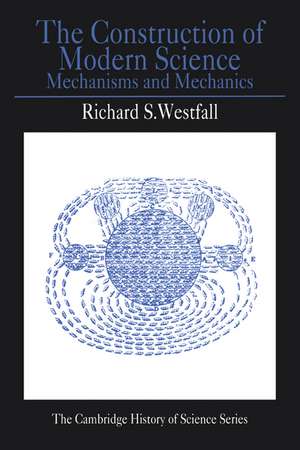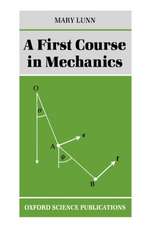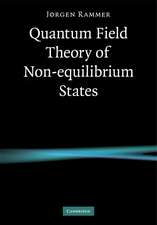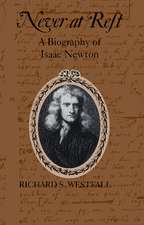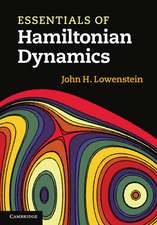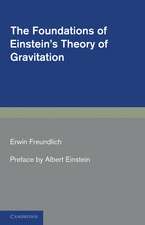The Construction of Modern Science: Mechanisms and Mechanics: Cambridge Studies in the History of Science
Autor Richard S. Westfallen Limba Engleză Paperback – 26 ian 1978
Din seria Cambridge Studies in the History of Science
-
 Preț: 161.64 lei
Preț: 161.64 lei - 5%
 Preț: 179.26 lei
Preț: 179.26 lei -
 Preț: 147.23 lei
Preț: 147.23 lei -
 Preț: 174.55 lei
Preț: 174.55 lei -
 Preț: 135.57 lei
Preț: 135.57 lei -
 Preț: 238.90 lei
Preț: 238.90 lei -
 Preț: 175.52 lei
Preț: 175.52 lei -
 Preț: 173.41 lei
Preț: 173.41 lei -
 Preț: 397.89 lei
Preț: 397.89 lei
Preț: 175.52 lei
Nou
Puncte Express: 263
Preț estimativ în valută:
33.60€ • 36.51$ • 28.24£
33.60€ • 36.51$ • 28.24£
Carte tipărită la comandă
Livrare economică 21 aprilie-05 mai
Preluare comenzi: 021 569.72.76
Specificații
ISBN-13: 9780521292955
ISBN-10: 0521292956
Pagini: 190
Ilustrații: illustrations, bibliography, index
Dimensiuni: 150 x 229 x 10 mm
Greutate: 0.3 kg
Editura: Cambridge University Press
Colecția Cambridge University Press
Seria Cambridge Studies in the History of Science
Locul publicării:New York, United States
ISBN-10: 0521292956
Pagini: 190
Ilustrații: illustrations, bibliography, index
Dimensiuni: 150 x 229 x 10 mm
Greutate: 0.3 kg
Editura: Cambridge University Press
Colecția Cambridge University Press
Seria Cambridge Studies in the History of Science
Locul publicării:New York, United States
Cuprins
Introduction; 1. Celestial dynamics and terrestrial mechanics; 2. The mechanical philosophy; 3. Mechanical science; 4. Mechanical chemistry; 5. Biology and the mechanical philosophy; 6. Organization of the scientific enterprise; 7. The science of mechanics; 8. Newtonian dynamics; Index.
Descriere
This book examines the interplay between the Platonic-Pythagorean tradition and the mechanical philosophy during the 'scientific revolution'.
